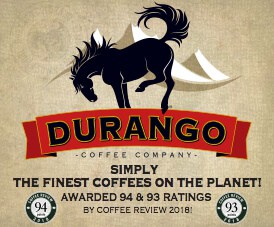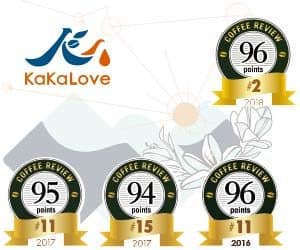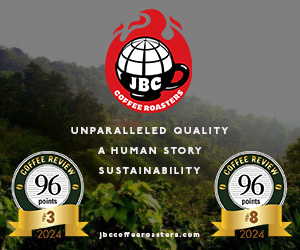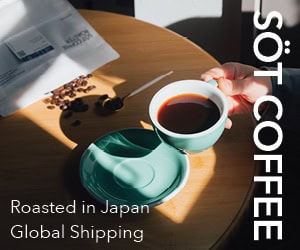Produced from trees of the Caturra and Catuai varieties of Arabica by the Cooperativa de Caficultores de Dota, a cooperative admired for its environmental and social initiatives as well as its fine coffees. JBC Coffee Roasters’ vision is simple: “let the coffee lead the way” through sourcing and roasting the best and most unique coffees available and rewarding the farmers who grow those coffees
SEARCH RESULTS
Costa Rica El Vapor
Produced from trees of the Caturra and Catuai varieties of Arabica by the Cooperativa de Caficultores de Dota, a cooperative admired for its environmental and social initiatives as well as its fine coffees. JBC Coffee Roasters’ vision is simple: “let the coffee lead the way” through sourcing and roasting the best and most unique coffees available and rewarding the farmers who grow those coffees
Costa Rica La Frente Cerro Verde Black Honey Microlot
Produced entirely of the Catuai variety of Arabica at the Cerro Verde micromill and processed by the black honey method. With all honey processing methods, some sweet pulp or fruit flesh (“honey”) is allowed to adhere to the beans during drying. In the black honey variation, the beans are subjected to a slower drying process than is the case with yellow or red honey processing. This coffee tied
Brazil Espirito Santo Pulped Natural
Produced by Laudalino Grinevald entirely from trees of the Catuai variety of Arabica. Processed by the pulped natural (the Brazilian term) or “honey” (the Central-American term) method, in which the skin is removed from the coffee fruit immediately after picking, but the seeds or beans are dried with all or part of the sweet pulp, or fruit flesh, still adhering to them. This coffee tied for the
Honduras Finca Las Flores Honey
Produced by Gerardo Peñalba from trees of the Bourbon, Typica, Catuai, Caturra and Pacas varieties of Arabica. Processed by the honey method, which means that the outer skin is removed as it is in the wet or “washed” process, but at least some of the sticky fruit residue is allowed to dry on the bean and later removed by machine along with the parchment skin. This coffee tied for the
Sol Naciente Costa Rica Red Honey
Produced from trees of the Caturra and Catuai varieties of Arabica by the Sol Naciente Cooperative and processed by the red honey method. With all honey processing methods, some sweet pulp or fruit flesh (“honey”) is allowed to adhere to the beans during drying. In the red honey variation, all of the pulp is allowed to dry on the beans, rather than only a portion of it, as would be the case with
Costa Rica La Falda Grande
Produced from the respected Caturra and Catuai varieties of Arabica. This is a wet-processed or “washed” coffee, meaning the fruit skin and pulp were removed from the beans immediately after harvesting and before drying. Ghost Town is a small-batch roaster, wholesaler, equipment supplier and training resource located in Bozeman, Montana that takes great care in responsibly sourcing top-quality
El Tontolo Manguito Honduras
Produced by farmer Isidro Lara from the Caturra and Catuai varieties of Arabica. This is a wet-processed or “washed” coffee, meaning the fruit skin and pulp were removed from the beans immediately after harvesting and before drying. This coffee is Rainforest Alliance certified, meaning it was produced following sustainable ecological and socio-economic criteria developed by the Sustainable
Alma Estate Panama Natural
Produced entirely of trees from the Catuai variety of Arabica by Roberto Brenes of Auromar Estate. This is a dry-processed or “natural” coffee, meaning the beans were dried inside the fruit rather than after the fruit has been removed, as is the case with wet-processed or “washed” coffees. Dragonfly Coffee is a Boulder, Colorado-based micro-roaster that produces high-quality coffees and supports
San Ysidro Costa Rica
Produced from the Caturra and Catuai varieties of Arabica at La Union Farm in the Central Valley of Costa Rica. Most likely processed by the yellow honey method, in which the fruit skin is removed as it is in the wet or “washed” process, but some of the sticky fruit residue is allowed to dry on the bean and later removed by machine along with the parchment skin. This coffee tied for the
Carmo de Minas Canaan Estate Natural Pedreira Microlot
Produced on the Canaan Estate entirely from trees of the Yellow Catuai variety of Arabica. A “natural” or dry-processed coffee, which means the beans or seeds were dried encased in the entire fruit. Naturals form the backbone of the Brazil coffee industry, but this lot reflects a particularly refined approach to the method. This coffee tied for the third-highest-rated in a test of
Fazenda Sertão Brazil
Produced from trees of the Yellow and Red Bourbon and Catuai varieties of Arabica. A “natural” or dry-processed coffee, which means the beans or seeds were dried encased in the entire fruit. Naturals form the backbone of the Brazil coffee industry, but this lot reflects a particularly refined approach to the method. This coffee tied for the second-highest rating in a test of natural-processed
Brazil Fazenda Passeio Natural
This exceptional coffee was selected as the No. 7 coffee on Coffee Review’s list of the Top 30 Coffees of 2016. Produced from trees of the Yellow Catuai, Mundo Novo and Acaia varieties of Arabica. A “natural” or dry-processed coffee, which means the beans or seeds were dried encased in the entire fruit. Naturals form the backbone of the Brazil coffee industry, but this lot reflects a particularly
Boa Vista Brazil
Produced from trees of the Bourbon, Catuai and Mundo Novo varieties of Arabica by Celso, Gertrudes and Denner Augusto on their small farm Sitio Boa Vista. A “natural” or dry-processed coffee, which means the beans or seeds were dried encased in the entire fruit. Naturals form the backbone of the Brazil coffee industry, but this lot reflects a particularly refined approach to the method. This
Brazil Fazenda Beneficio Presente do Sol
Produced entirely from trees of the Yellow Catuai variety of Arabica. A “natural” or dry-processed coffee, which means the beans or seeds were dried encased in the entire fruit. Naturals form the backbone of the Brazil coffee industry, but this lot reflects a particularly refined approach to the method. This coffee was one of five tied for the third-highest rating in a test of natural-processed
Cerro San Luis Costa Rica
Produced by Alexander and Sara Delgado at their farm in Costa Rica’s Central Valley from trees of the Catuai, Caturra and Villa Sarchi varieties. Chocolate Fish is a distinguished New-Zealand-inspired micro-roaster based in Sacramento California, focused on the best in both quality and integrity.Visit www.chocolatefishcoffee.com or call 916-451-5181 for more information.
Organic Guatemala Asuvim Micro Lot
Produced from trees of four different varieties of arabica: Bourbon, Caturra, Catuai and Pache. Certified organically grown and Rainforest Alliance certified, meaning this coffee was produced following sustainable ecological and socio-economic criteria developed by the Sustainable Agricultural Network, a coalition of independent, environment-focused non-governmental organizations. Purchased as
Costa Rica Las Lajas Red Honey
Produced from trees of the respected Catuai and Caturra varieties of Arabica at Calle Liles Farm and processed by the red honey method, meaning the beans were dried with 100% of the fruit flesh still adhering to the beans. Certified organic. Established in 2010, Red Rooster is an organic-certified micro-roaster focusing on socially conscious coffee and high-quality coffee. Visit
Panama Elida Natural Lot #13
A fine example of a “natural” or dry-processed coffee, meaning the beans were dried inside the fruit, encouraging a flavor profile that is sweeter and deeper-toned than the more familiar wet-processed coffees of Panama. Produced entirely from tree of the respected Catuai variety of Arabica. The Lamastus family’s Elida Estate averages the highest growing elevations in Panama: 5,500 to 8,200 feet
Costa Rica El Jordan Natural Small-Lot Reserve
Produced by farmers Don Sabino and Steven Vargas at El Jordan Micromill in Costa Rica from Caturra and Catuai varieties of Arabica. This is a dry-processed or "natural" coffee, meaning the beans were dried inside the fruit rather than after the fruit has been removed, as is the case with wet-processed or "washed" coffees. Dragonfly Coffee is a Boulder, Colorado-based micro-roaster that produces












